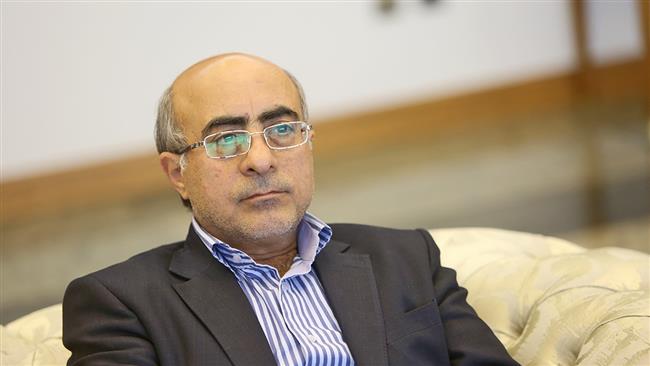Monetary Discipline on CBI Agenda

EghtesadOnline: A senior official of the Central Bank of Iran outlined past and future measures of President Hassan Rouhani's government in line with the implementation of Resistance Economy principles and the beneficial effects of Iran's nuclear deal with world powers on the economy.
"Coupled with the general approach of CBI to improve monetary discipline, managing liquidity growth, maintaining the stability of currency market, robust financing of the economy, redirecting resources toward manufacturing and supporting the small- and medium-sized enterprises, a general platform has been laid out for the betterment of the general performance of macroeconomic variables," Akbar Komijani, the vice governor of CBI, was also reported as saying by the official news website of the central bank.
Speaking at the National Conference on the Joint Comprehensive Plan of Action and Its Effects and Consequences in Post-Sanctions Era and Resistance Economy, Komijani pointed to measures considered by the central bank to advance the goals of Resistance Economy.
He identified these measures as “organizing uncertified financial institutions, undertaking an all-encompassing reform of the banking system, clearing government arrears to the banks and private sector, and conforming banking regulations and transactions to international laws and standards”, according to Financial Tribune.
Resistance Economy refers to a set of principles outlined by the Leader of Islamic Revolution Ayatollah Seyyed Ali Khamenei aimed at bolstering domestic production, curbing dependence on oil exports, improving productivity and encouraging Iranians to buy domestically-manufactured products.
Impacts of JCPOA
The CBI’s second-in-command directed his attention to Iran’s nuclear accord with world powers implemented in January, proceeding to outline the conditions of Iranian economy in 10 categories before the sanctions, at the peak of sanctions and after they were lifted as a result of the accord.
Komijani noted that banking correspondent relations have been established with 600 non-American banks before the sanctions.
Correspondent relations were cut off “with all credible international banks” during the sanctions and were reduced to about 50, but they have significantly improved – albeit “not to a suitable level yet”–and stand at more than 200 at present.
On international interbank messaging systems, he noted that Iranian banks were able to employ SWITF and REUTERS systems, while they were unable to do so at the height of sanctions and were forced to use “traditional mechanisms such as Telex and coded fax”. As a result of JCPOA, SWIFT was reestablished for Iranian banks.
The third factor was safeguarding the country’s currency reserves mainly resulting from oil sales, which could not be moved to a third country after the sanctions and therefore CBI was forced to keep them “in a limited number of countries that bought oil from Iran”.
Now, Komijani added, the central bank is free to maintain them in various countries.
Before the sanctions, Iran’s international payments were mainly done through letters of credit, “which incur the least costs and are safest”, but as a result of non-existent correspondent banking relations during the sanctions, the country used the “risky mechanism of payment orders”.
“This process is being slowly reverted,” he added.
“Iran’s best OECD risk rating has been three out of seven,” said Komijani, pointing out that it had been downgraded to seven as a result of the sanctions.
It has now improved to six and “endeavors are underway to further improve it”.
The official referred to Iran’s presence in international financial and monetary community as the next factor, saying the country “is employing their technical assistance” as much as possible.
Iran’s ability to obtain banknotes, gold and precious metals was significantly hindered by the sanctions, he added, which conditions has been remedied and can now be done “through non-American individuals”.
Foreign Finance
Komijani said the country was able to use foreign capital to finance local projects before the sanctions, which was limited to a bare minimum and “in the few possible instances, it was with the backing of CBI resources and entailed high costs”.
Now, he added, a number of countries have announced the amount of credit they want to allocate to the country and negotiations are underway with others.
He pointed to the didactic services of expert organizations and credible international banks employed by Iran before the sanctions, which were remarkably hindered afterwards.
“The process has restarted,” he said, adding that many educational seminars and courses are being held for Iranian banks, the effects of which “will be tangible in the financial and banking regime of the country”.
The CBI official referred to taking part in the international capital market as the final factor, which “seemed impossible” under sanctions, especially considering that it was limited even earlier.
In the JCPOA, he concluded, it has been cited that “it is now possible to procure financing from foreign capital markets, although the implementation of this process requires time”.


